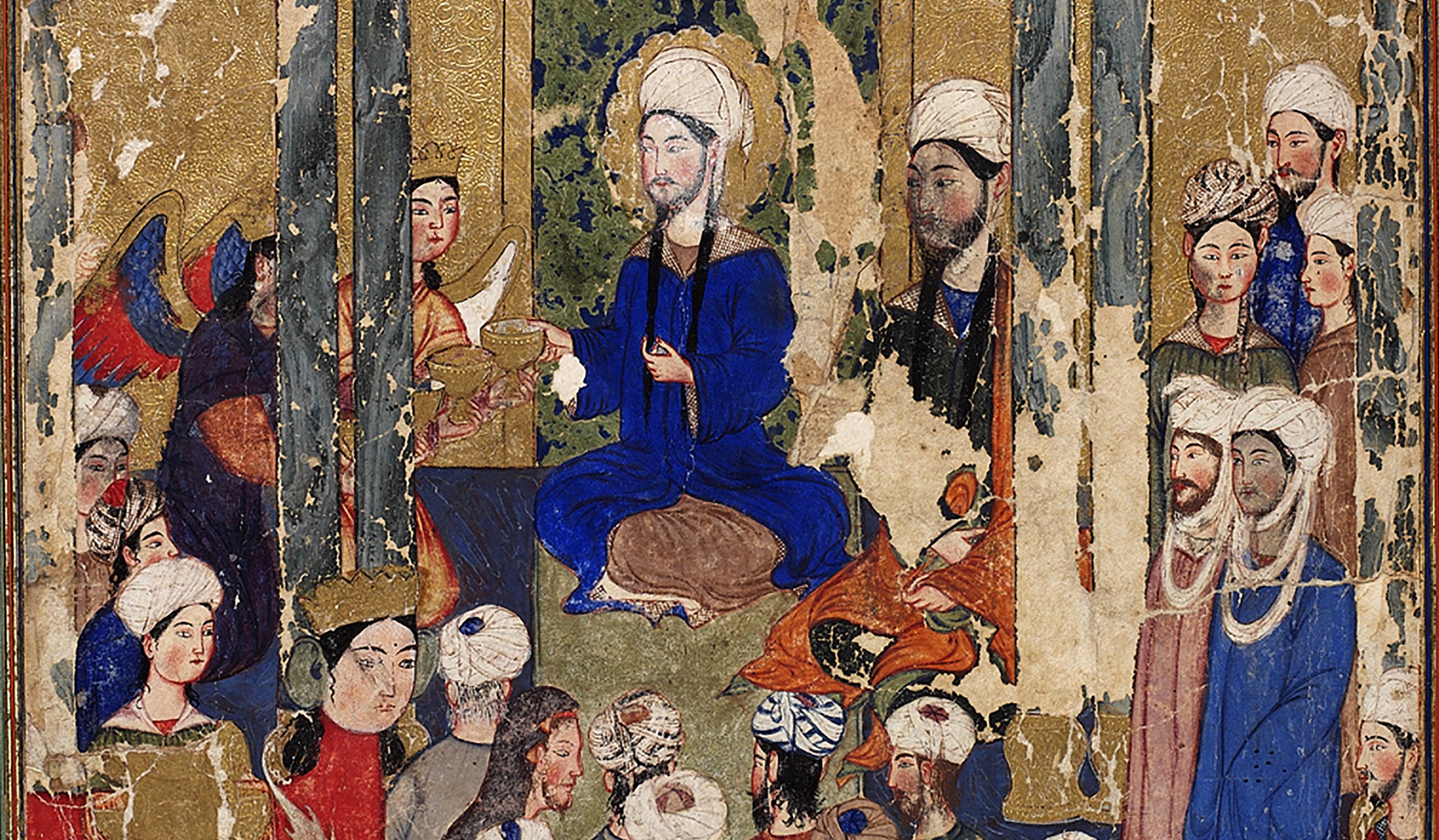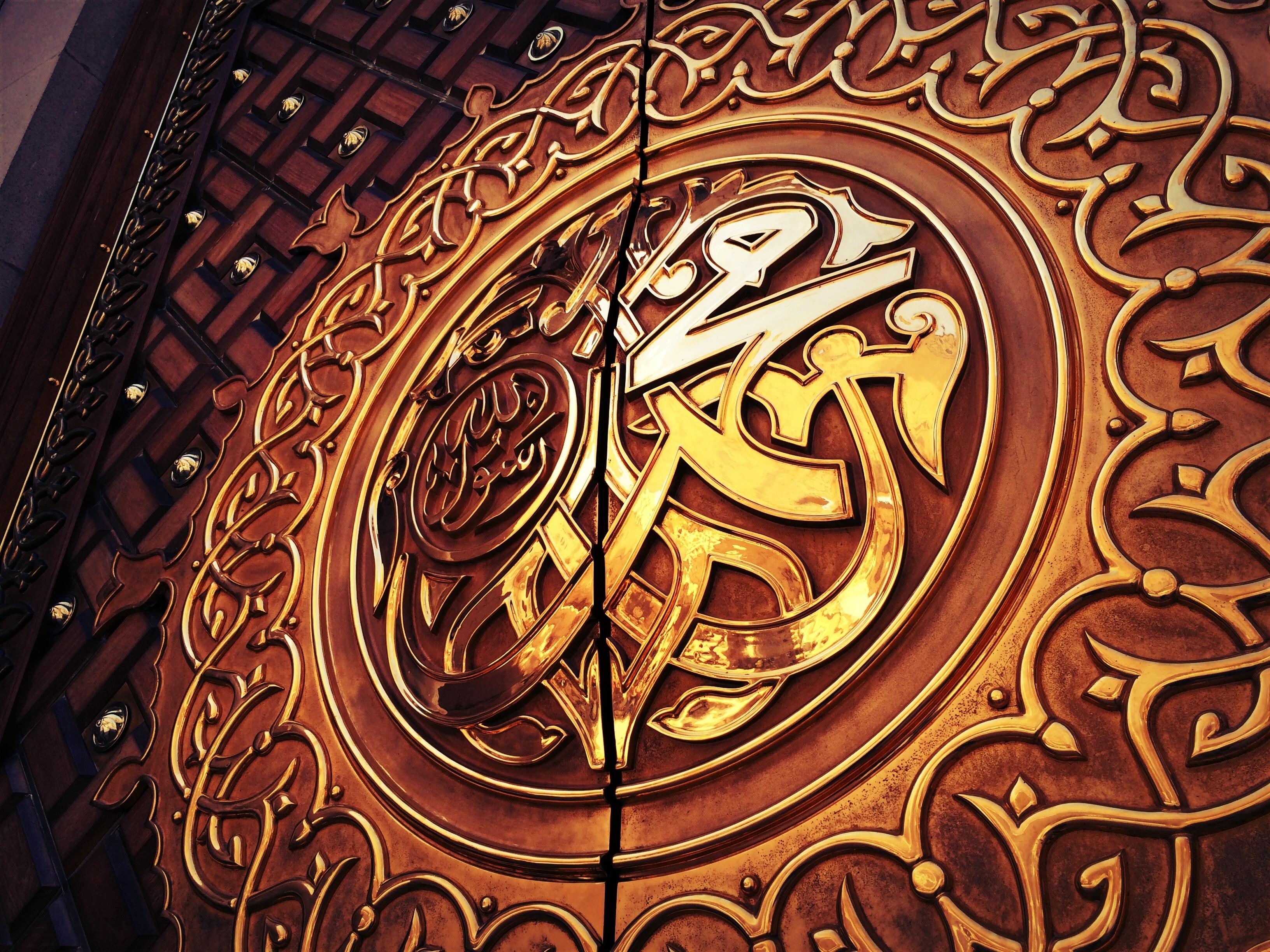Prophet Muhammad: The Founder Of Islam And A Pivotal Figure In World History, who lived from approximately 570 to 632 CE, is widely regarded as one of the most influential figures in human history.
Editor's Notes: "Prophet Muhammad: The Founder Of Islam And A Pivotal Figure In World History" have published today date". Give a reason why this topic important to read.
Through our careful analysis and research, we have compiled this comprehensive guide to shed light on the life, teachings, and legacy of Prophet Muhammad. This guide aims to provide a deeper understanding of his pivotal role in shaping the course of world history and the profound impact of his teachings on billions of people around the globe.
Key Differences or Key Takeaways:
We will delve into the following key topics in the main article:
FAQ
Discover answers to frequently asked questions about Prophet Muhammad, the revered founder of Islam and a pivotal figure in global history: Prophet Muhammad: The Founder Of Islam And A Pivotal Figure In World History

20 Excellent are paintings allowed in islam You Can Use It Free Of - Source artxpaint.com
Question 1: How did Muhammad's teachings impact the world?
Answer: Muhammad's teachings, enshrined in the Quran, profoundly influenced Islamic civilization and shaped moral and ethical values across cultures. They emphasized belief in one God, social justice, compassion, and the pursuit of knowledge.
Question 2: What were Muhammad's key achievements?
Answer: Muhammad unified the Arabian Peninsula under the banner of Islam, established a centralized Islamic state, and laid the foundation for a religious and political system that would endure for centuries.
Question 3: What challenges did Muhammad face?
Answer: Muhammad's mission was met with resistance and persecution from the pagan Meccan establishment. He faced ridicule, economic sanctions, and even assassination attempts.
Question 4: How did the Prophet Muhammad contribute to the advancement of civilization?
Answer: Muhammad encouraged literacy and education, promoted trade and commerce, and introduced advanced agricultural practices. He also laid the groundwork for advancements in medicine, mathematics, and astronomy during the Islamic Golden Age.
Question 5: What lessons can be learned from the life of Prophet Muhammad?
Answer: Muhammad's life exemplifies perseverance, resilience, compassion, and the importance of standing up for one's beliefs. He serves as an inspirational role model for Muslims and non-Muslims alike.
Question 6: How can we better understand the significance of Prophet Muhammad?
Answer: To gain a comprehensive understanding, explore various sources, including the Quran, historical accounts, and scholarly works. Engage with Muslim communities and participate in respectful dialogue to bridge cultural gaps.
Summary: Prophet Muhammad's legacy continues to shape the world, inspiring spiritual growth, fostering ethical values, and promoting social harmony. His teachings transcend time, offering guidance and encouragement for generations to come.
Transition: Read more articles about Prophet Muhammad and his profound impact on the global historical landscape.
Tips
The teachings of Prophet Muhammad, the founder of Islam, offer valuable life lessons and guidance. Here are some tips from his teachings that can help individuals lead meaningful and fulfilling lives.
Tip 1: Seek knowledge.
Prophet Muhammad emphasized the importance of acquiring knowledge throughout one's life. He encouraged Muslims to seek knowledge from all available sources, including both religious and secular texts. The pursuit of knowledge helps individuals expand their understanding of the world, develop critical thinking skills, and make informed decisions.
Tip 2: Practice honesty and integrity.
Honesty is a fundamental virtue in Islam. Prophet Muhammad taught that Muslims should always speak the truth, even when it is difficult. He also stressed the importance of keeping promises and fulfilling obligations. Practicing honesty and integrity builds trust and strengthens relationships, both within the Muslim community and beyond.
Tip 3: Show compassion and kindness.
Prophet Muhammad was known for his compassion and kindness towards others. He encouraged Muslims to treat others with respect and kindness, regardless of their background or beliefs. Muslims are taught to extend a helping hand to those in need, support their neighbors, and show kindness to animals and the environment.
Tip 4: Seek forgiveness.
Prophet Muhammad taught that humans are prone to making mistakes. The importance of forgiveness is frequently mentioned in Islamic teachings, as it allows individuals to let go of past mistakes, seek reconciliation, and move forward in a positive direction.
Tip 5: Be grateful.
Prophet Muhammad encouraged Muslims to be grateful for the blessings they have in life. He believed that expressing gratitude helps individuals appreciate the good things in their lives and fosters a sense of contentment. Muslims are taught to express gratitude through prayers, words, and actions.
Tip 6: Strive for excellence.
Prophet Muhammad emphasized the importance of striving for excellence in all aspects of life. He encouraged Muslims to be diligent, work hard, and always try to improve themselves. The pursuit of excellence helps individuals develop their potential, achieve their goals, and contribute positively to society.
Tip 7: Be patient.
Patience is a virtue that is highly valued in Islam. Prophet Muhammad taught that Muslims should be patient in times of difficulty and adversity. Patience allows individuals to persevere through challenges, maintain their composure, and ultimately achieve their goals.
Tip 8: Trust in God.
Prophet Muhammad taught that Muslims should put their trust in God in all matters. Trusting in God provides peace of mind, helps individuals overcome challenges, and fosters a sense of hope and optimism. Muslims are taught to rely on God's guidance, seek His help, and have faith in His plan.
Conclusion:
Prophet Muhammad's teachings provide valuable guidance for living a virtuous and fulfilling life. By embracing these tips and incorporating them into our daily lives, we can strive to be better Muslims, contribute positively to society, and ultimately achieve success and happiness in both this world and the hereafter.
Prophet Muhammad: The Founder Of Islam And A Pivotal Figure In World History
Prophet Muhammad, the founder of Islam, holds a pivotal position in world history, influencing diverse aspects of human civilization. His teachings, leadership, and character shaped the course of religious, political, and social spheres, leaving an enduring legacy.
- Religious Reformer: Muhammad introduced monotheism and ethical principles, revolutionizing the spiritual landscape of Arabia.
- Political Leader: As head of the Islamic state in Medina, he established a just and egalitarian society, uniting diverse tribes under a common banner.
- Military Strategist: Muhammad's leadership in battles like Badr and Uhud demonstrated his tactical acumen and inspired his followers.
- Cultural Influencer: Islamic art, architecture, and literature flourished under Muhammad's patronage, shaping artistic expression and knowledge.
- Economic Visionary: The economic policies he implemented promoted trade, commerce, and social welfare, creating a thriving society.
- Prophet of Mercy: Muhammad emphasized compassion, forgiveness, and respect for all, leaving a timeless legacy of spiritual and ethical guidance.
In conclusion, Prophet Muhammad's influence extended beyond religious boundaries, impacting politics, society, and culture. His teachings continue to inspire millions worldwide, making him a pivotal figure whose legacy continues to shape the world.

Facts About the Prophet Muhammad (PBUH) | ILM UK - Source www.ilmuk.org

I detti del Profeta e le fortune del salafismo - Oasis - Source www.oasiscenter.eu
Prophet Muhammad: The Founder Of Islam And A Pivotal Figure In World History
Prophet Muhammad, the founder of Islam, is widely recognized as a pivotal figure in world history. His teachings have left an enduring impact on religious, political, and social systems across the globe. Muhammad's life and mission are intricately connected to the development of Islam as a major world religion and a force that has shaped civilizations for centuries.

Twibbon Birthday Of The Prophet Muhammad Vector, Twibbon Birthday Of - Source pngtree.com
The establishment of Islam under Muhammad's leadership marked a significant turning point in the history of the Middle East and beyond. The new faith spread rapidly, creating a unified Muslim community and challenging the existing political and religious structures. Muhammad's teachings emphasized the importance of monotheism, justice, and social welfare, shaping the values and beliefs of countless individuals and communities.
Muhammad's legacy extends far beyond the religious sphere. His influence is evident in art, architecture, literature, and law. The Islamic empires that emerged after his death became centers of learning and innovation, contributing to advancements in science, mathematics, and medicine. Muhammad's teachings continue to guide Muslims worldwide, inspiring spiritual growth and shaping personal and communal identity.
| Aspect | Contribution |
|---|---|
| Religious | Founder of Islam, a major world religion |
| Political | Unification of the Arabian Peninsula under Islamic rule |
| Social | Established a system of social welfare and justice |
| Cultural | Inspired a rich tradition of art, architecture, and literature |
| Intellectual | Promoted literacy and education, leading to advancements in science and scholarship |
Conclusion
Prophet Muhammad's impact on world history cannot be overstated. He founded a major world religion, established a vast empire, and left an enduring legacy in countless fields of human endeavor. His teachings continue to shape the beliefs and values of millions worldwide, making him a truly pivotal figure in the course of human civilization.
The ongoing influence of Prophet Muhammad's life and mission serves as a reminder of the enduring power of religious and spiritual beliefs in shaping human history. It also highlights the importance of interfaith dialogue and understanding in fostering tolerance and cooperation among different cultures and traditions.